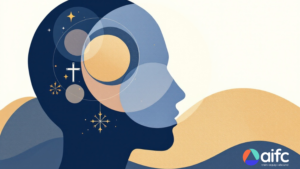Is now the right time to become a counsellor?
According to the latest national data, the answer is yes. Counselling careers in Australia have never been in more demand.
The 2024 ACA Workforce Census confirms a growing demand for qualified counsellors across Australia. The profession is gaining recognition in schools, community organisations, and private practice—offering career flexibility, long-term growth, and a real sense of purpose.
Whether you’re a current student or considering advancing your qualifications, now is an ideal time to step into this high-impact profession. Below, we’ll unpack the latest trends, salary data, and career pathways available to counselling professionals today.
A Profession in Demand
The Australian Counselling Association (ACA) reports that the counselling workforce includes approximately 34,600 professionals, with projected growth of 15.1% between 2023 and 2028.
Counsellors are currently serving clients across a wide range of settings:
-
Private practice
-
Schools and universities
-
Not-for-profit organisations
-
Disability support services
-
Employee Assistance Programs (EAPs)
Key areas of client need include:
-
Anxiety and stress
-
Depression and trauma
-
Grief and loss
-
Family and relationship issues
This breadth reflects both the adaptability of counselling skills and the rising demand for emotional and psychological support across the country.
For students currently undertaking a Graduate Diploma of Counselling, or those considering a Master of Counselling, the alignment with national service needs is strong—and growing.
Diverse and Flexible Career Pathways
The 2024 ACA Census reveals a variety of employment arrangements within the counselling sector:
-
36% are self-employed in private practice
-
25% hold salaried positions
-
19% work in hybrid roles (both employed and self-employed)
This flexibility allows counsellors to shape their careers based on personal priorities—be that family, ministry, mental health advocacy, or trauma-informed specialisation.
At AIFC, our graduates often find themselves well-equipped to launch private practices, serve faith-based organisations, or continue studying through our pathway to a Master of Counselling with ACOM.
High Qualifications and Lifelong Learning
The sector is marked by a high level of professional commitment:
-
85% of ACA-registered counsellors hold a counselling-specific qualification
-
Nearly 50% have completed postgraduate study
-
A Master of Counselling is the most common highest qualification among employed professionals
Encouragingly, one in five counsellors are currently pursuing further study—signalling a vibrant culture of ongoing development.
If you’re a Graduate Diploma student wondering about the next step, you’re in good company. Many are choosing to pursue postgraduate qualifications to increase their impact and open more professional doors.
Real-World Outcomes: Salary, Hours, and Workload
Counsellors are seeing real results and meaningful careers. The data shows:
-
13+ client sessions per week on average
-
32 hours per week for full-time counsellors across diverse settings
-
Highest average income: $125,952 for hybrid private/employed roles
-
Employed-only average income: $87,539
-
Solely self-employed average income: $75,140
Notably, nearly 30% of counsellors work fewer than 16 hours per week—highlighting the profession’s suitability for those seeking part-time, family-friendly, or phased work-life balance careers.
Counselling as a Profession of Purpose
The need for counselling services continues to rise—particularly in areas like:
-
Mental health: anxiety, depression, stress
-
Neurodivergent support
-
Family violence and trauma
-
Addiction and recovery
-
Spiritual disconnection and grief
These are all areas directly addressed in AIFC’s Graduate Diploma of Counselling, and further deepened in Master’s-level study through our academic pathway with ACOM.
Your Next Steps with AIFC
If you’re already on the path—or just beginning—AIFC is here to help you move forward with clarity and confidence.
Our Graduate Diploma to Master of Counselling pathway, delivered in partnership with ACOM, is designed to prepare you for advanced practice, specialisation, and long-term career fulfilment.
Learn more about our Graduate Diploma and Master Pathway → HERE
Because the profession is growing—and the need is urgent.
If you’re called to help others heal, there has never been a better time to begin.
Sources:
-
Australian Counselling Association (2024). ACA Workforce Census – Abridged Report
-
Jobs and Skills Australia (2023). Occupation Profile: Counsellors (2721)
-
NSW Government, My Career Planner – Occupation Insight: Counsellors



Have you thought about becoming a qualified counsellor? It’s a great opportunity to learn how you can extend God's love and grace to the hurting out in the community.
For those who would like to enrol in aifc’s accredited Christian counselling courses we have two intakes per year for courses commencing around the following months:
Enrolment Season - opens approximately 2 months prior to our courses commencing. Enrol online here during our enrolment season.
We also offer two modes of study:
A Master of Counselling course was introduced in 2018.